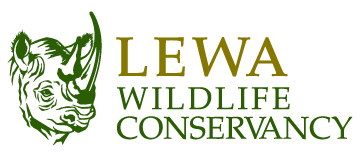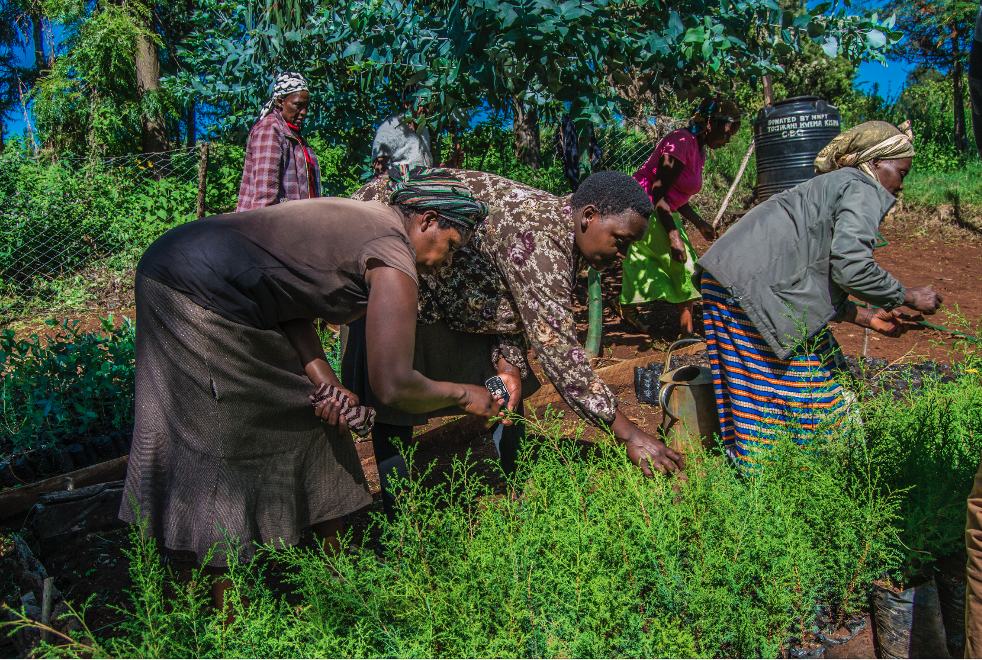Women’s Micro-Enterprise Programme Drives Holistic Impact

The Lewa Wildlife Conservancy’s Women’s Microenterprise Programme was established in 2001, and the first loan it granted was in 2003. Over the years, the fund and subsequent impact has expanded, predominantly due to major support from the Women’s Microfinance Initiative – a US-based non-profit providing financial inclusion for rural women in East Africa. The WME programme currently has a reach of 1800 women in table banking groups in communities surrounding Lewa – enabling them to acquire capital for startups and enhance existing businesses.
The initiative focuses on rural women because they play an important role in defining the society’s future while living in a location with a growing population and under-developed business possibilities. A key achievement of the microenterprise programme is that it has seen its members maintain a loan repayment rate of 80% with a total of USD. 1.2 Million as amount invested so far in the revolving fund.
As part of LWC’s Community Development initiatives, the programme focuses on poverty alleviation through women’s engagement in development projects, with the goal of skill preparedness to establish new or expand current enterprises, through capacity building and exposure. Furthermore, the programme has expanded the credit facility available to improve access to capital by women. The programmes’ goals and areas of focus are geared towards entrepreneurship training, marketing for women’s businesses, gender equity, and access to resources.
The programme aims to help women become more economically powerful in five ways:
- Training and Capacity Building – The training has given the women knowledge on how to improve the quality of their products, add value, and thus make a better offer on the market price. Furthermore, they have increased the number of sales, expanded into new income-producing activities, shown better quality, and made more money, so their profits have gone up.
- Exposure Tours –. The programme organises excursions to agricultural centres, farmers’ shows, and peer-to-peer visits where the women learn about effective and sustainable farming techniques, value addition to farm food, the development of byproducts, and recycling.
- Fuel conservation and acquisition of energy saving stoves – Notably, wood has been a source of fuel many years; which has led to the extinction of indigenous trees and deforestation. This has hindered soil formation, prevention of soil erosion and also ensures a clean atmosphere through absorption of carbon dioxide. The programme puts the effort on training and instilling a sense of participation in environmental management to the women; through the reduced usage of wood by introducing energy-saving stoves. The women in the programme easily embrace this as a result of understanding the implications and usage of this technology.
- Lewa Micro-Enterprise Revolving Fund – A majority of rural women have limited knowledge of banking and financial services available. The revolving fund endeavors to address challenges associated with growing businesses by giving soft loans either to start new business or expand existing ones. The loans range from $100-500 at 7.5% interest per annum with a 2-month grace period and 12 months’ repayment period. These include small scale agribusinesses, sewing among others which mostly are home based businesses.
- Counselling sessions – The programme identified some of the contextual issues that have led to psychological disturbances in the families. Some of the issues facing the borrowers are mostly substance abuse and terminal illnesses. The aim is to assist them in coping with these situations for overall positive social impact and to improve the performance of their businesses. The major topics covered so far during the counselling sessions were family dynamics, parenting, and health counselling.
Health Outreach
Diabetes, high blood pressure, and cancer incidences have been common in Kenya. According to reports from the healthcare programme, a considerable number of the women in the surrounding area are susceptible to these diseases owing to a lack of understanding and information on how to treat them, causing women to suffer in silence. In this regard, the programme enlisted the help of a healthcare team to guide the women through the process of illness awareness and management. Stress management and personal breast cancer checkup were also facilitated.
_________________________







